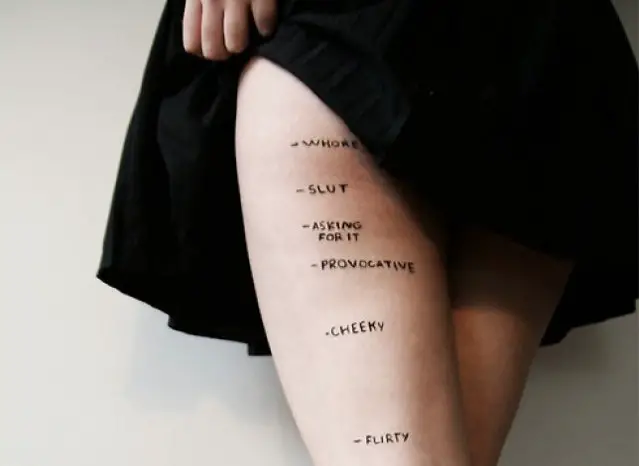A
Traumatic Childhood Takes its Toll
By:
Shelby Bagby

While
it’s easy to label Sookie as judgmental and disapproving of the other women in
this novel, it is important that the reader have some empathy for her, a victim
of sexual abuse. How should one cope with being sexually abused by a close
family member? Is there really a perfect way?
Of
course, there is no perfect way to react losing both your parents in a flash
flood and being sexually abused by your uncle. However, given the comments
stated during class, it is evident that most of the class does have an opinion
about her behavior. Sookie has definitely found her own way of coping with her horrendous
childhood, but unfortunately, she has found a negative outlet: she slut-shames.
She’s relentless as she calls out the imperfections of others and their
choices. I can almost picture Sookie’s disgusting glance toward Diane as she
tells the reader that she “could count her pubic hairs if [she] so desired” as
a result of her form-fitted clothing (162). Perhaps Sookie’s shaming of other
women can be seen as the defense mechanism, projection, or putting unwanted
feelings and emotions onto others. It’s possible that Sookie has a low
self-esteem due to the relationship that she had with her uncle, and the way
that she deals with that issue is by putting those negative thoughts onto
others. She might think her own wardrobe is too tight, so instead of dealing
with those thoughts, she harps on Denise for wearing “short shorts,” negatively
commenting that “Denise wasn’t truly pretty, but she was so flashy and
confident that it took a while to figure that out” (4). Maybe Sookie feels that
way about herself. Maybe she believes that she lacks confidence, isn’t that pretty,
and her own clothes are too tight. As a result, when she sees Denise with all
the confidence in the world, she tears her down: a mix of projection (clothing)
and jealousy (confidence).
Her
lack of self-confidence could also be what leads her into a heated relationship
with Bill, the new town vampire who is mainstreaming into society. Despite
knowing that vampires are known for their “sexual potency,” she immediately
recognizes when he crosses a line when he tells her that “there’s a juicy artery
in [her] groin” (13). She shuts down his risqué comments quickly: “Don’t you
talk dirty…I won’t listen to that” (13). However, once she becomes committed to
Bill and their relationship physically advances, she finds herself in a grey
area. She knows that she “[doesn’t] want to disappoint [him] sexually” but she
also knows when she’s had enough (154). After Bill tries to heal Sookie with
his blood, she tries to end the intense moment with a simple “Thanks” (156). Apparently,
Bill did not understand what Sookie was trying to communicate or refused to
acknowledge her lack of interest, because “he didn’t remove his finger” (156). Why
does the reader not empathize with Sookie when it appears that Bill is not acting
in accord with Sookie’s consent, or lack thereof?
If
the reader calls Sookie judgmental, doesn’t that make the reader judgmental? I
agree that Sookie’s methods for dealing with her past are not admirable: she’s
jealous of other women, shines a negative light on their imperfections, and
projects her feelings onto others. However, if the reader were to judge Sookie
for acting that way, the reader wouldn’t be much better than Sookie.
Wow. I never thought of Sookie using slut-shaming as a defense mechanism from her past experiences. When you mentioned the part about how Sookie ridiculed Diane's clothing, I simply interpreted it as Charlaine Harrison wanting a Hooter's themed bar for Merlotte's to create more drama in the novel. It is also interesting to see that when Bill talks sexually to Sookie, she shuts him down quickly; on the contrary, when Sookie thinks about these sexual scenarios, she seems to linger on about it.
ReplyDelete